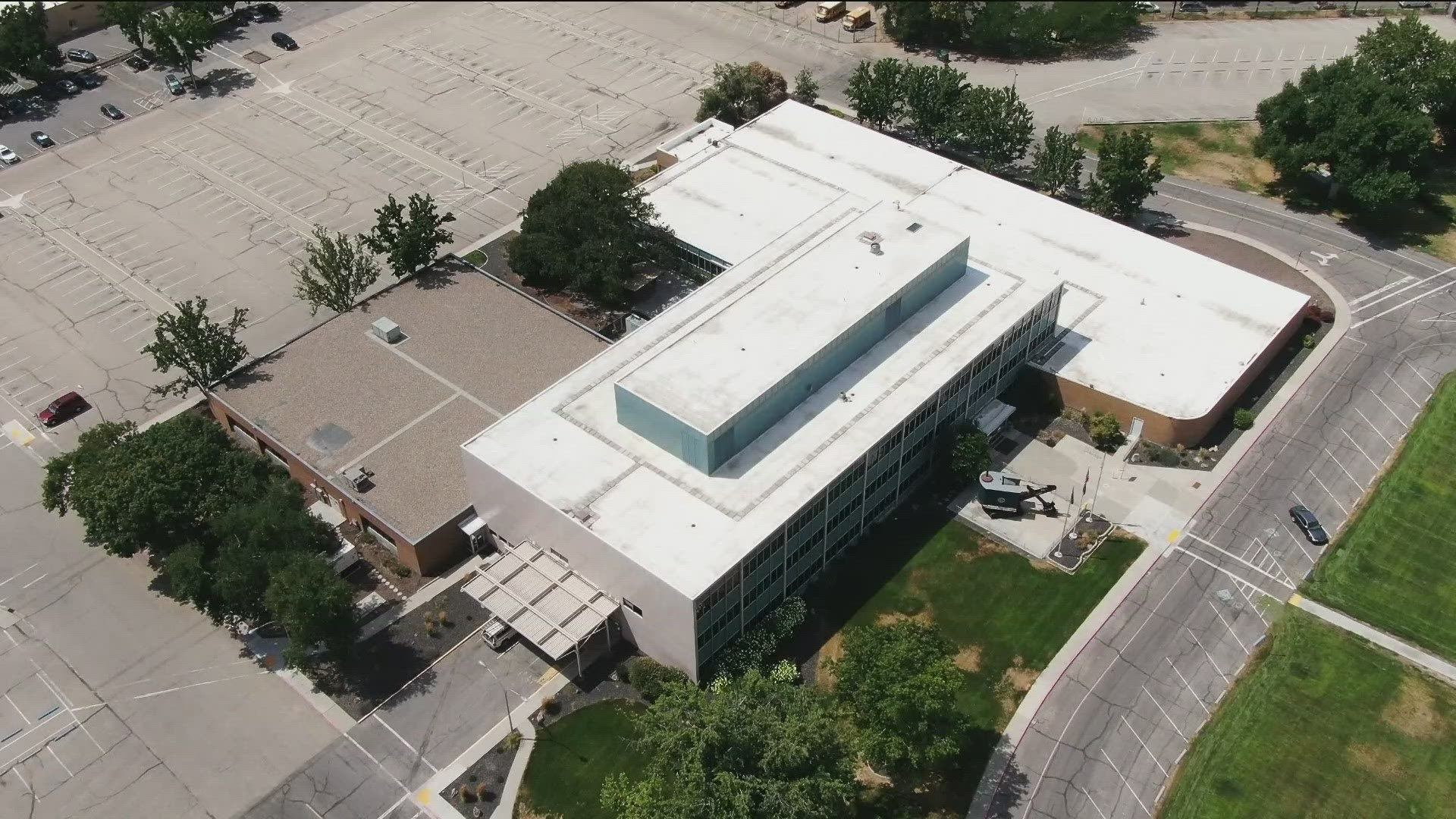BOISE, Idaho —
This story originally appeared in the Idaho Press.
Many Idahoans watched with shock last August as the Taliban swiftly took over Afghanistan. The year since has been hard for some Afghan people in the Treasure Valley whose families still aren’t out of the region.
Boise resident Homeyra Shams last year told the Idaho Press her older sister and niece were still in Afghanistan. On Friday, Shams said her relatives were now in Pakistan but their immigration case had been denied.
“We are trying to help as much as we could help people in Afghanistan. But also we are so helpless that we cannot help our own family in there,” Shams said. “...We don’t have an answer for the future. We don’t know what’s going on.”
Shams fled Kabul when she was a toddler after the Taliban first took over.
Under Taliban rule, women were almost entirely banned from education and couldn’t leave their homes without a man, as previously reported. The Taliban ruled most of Afghanistan from 1996 to 2001, according to Congress.
The United States invaded Afghanistan in fall 2001 after Congress almost unanimously authorized military force in response to 9/11.
Former President George W. Bush launched attacks against al-Qaida and the Taliban after al-Qaida planned the 9/11 attack from bases within Afghanistan. The Taliban declined to turn over al-Qaida leaders.
The United States started nation building, University of Idaho Emeritus Professor of History Rick Spence told the Idaho Press last year.
Then, the Taliban quickly surged last summer and took the country in just over a week.
Tens of thousands of Afghan people who helped the United States were left behind, NBC News reported. A suicide bomber attacked at the airport, killing 13 U.S. service members. The chaotic American departure was a disaster for the Biden administration.
Multiple news outlets have reported on the restrictions since August 2021. In the year since, women again have been sent home from some jobs and barred from education past a certain level. The Taliban banned music. Beards are mandatory for government workers, and last September the Taliban told certain hairdressers they are not allowed to trim beards.
Women can no longer play sports. And 95% of Afghan people are not getting enough to eat, according to the United Nations. However, the New York Times reported that Afghanistan is largely at peace.
Shams said she has heard through family about the emotional impact of the situation in Afghanistan. She’s heard stories of young women and men who die by suicide because of what is going on and what they lost.
“Before they had hope, they were going to college and they lost all that,” Shams said. “A lot of younger people are committing suicides because of what their hope was. They were believing that they are going to college and they will have a better life….All of a sudden, everything has stopped for them.”
Her family in Pakistan is struggling as well. Without a visa, Shams and her family cannot send money. The family in Pakistan has one room they live in. They don’t know anybody. They don’t speak the language. Shams’ niece used to be in college and Shams’ sister lost her job as a doctor at a hospital. Shams’ sister also has diabetes.
Meridian resident Ramin Amini told the Idaho Press last August that his parents were still in Afghanistan.
On Friday, he said he was still working on their documents and that he was told his parents need to go through another country first. His parents are doing good, he said, but his dad mostly stays home and doesn’t go outside.
“They’re really in a bad situation,” Amini said. “The problem right now in Afghanistan is there is no U.S. Embassy. It’s very hard to get a passport for them.”
In the past year, Idaho has welcomed around 500 refugees from Afghanistan, according to Holly Beech, Idaho Office for Refugees communications manager.
Those who evacuated went through a “pretty arduous journey,” she said. Although many are grateful there’s also broken hearts from leaving family behind.
“It’s like in the moment of crisis and danger, you do what you do to get out and you’re operating off adrenaline and then comes the journey of adjusting to this new reality and building a new life,” Beech said.
Many who came were granted humanitarian parole, she said. However, humanitarian parole does not come with a pathway to permanent residency which is creating more anxiety.
There is federal funding available to help refugees from Afghanistan, said Chris Christensen, an immigration attorney and owner of Christensen Legal. Many of it goes to basic necessities but there are funds to help with immigration status.
Once refugees arrive, they are screened to determine the best immigration option, including family-based, asylum, temporary protected status or permanent residence.
The process is not without its challenges. Christensen said he needs an interpreter which adds time to meetings. Plus, many have been traumatized.
“There are very real mental health challenges. There are very real communication challenges,” Christensen said. “There are very, very real concerns about the family members who are still abroad.”
If humanitarian parole is approved, that is not a ticket safely out of Afghanistan, Christensen said.
“That’s a ticket into the U.S.,” Christensen said. “You may have a piece of paper that gives your family permission to enter the United States but unless they can make it safely out of Afghanistan, unfortunately, all that is a piece of paper.”
On Aug. 15, 2021, Afghanistan’s government collapsed. The Taliban entered Kabul as President Ashraf Ghani fled the country.
A year later, Shams and Amini are still trying to help their relatives.
“I don’t know how to explain this feeling,” Shams said. “But it’s really hard.”
This story originally appeared in the Idaho Press. Read more at IdahoPress.com
Watch more Local News:
See the latest news from around the Treasure Valley and the Gem State in our YouTube playlist:



